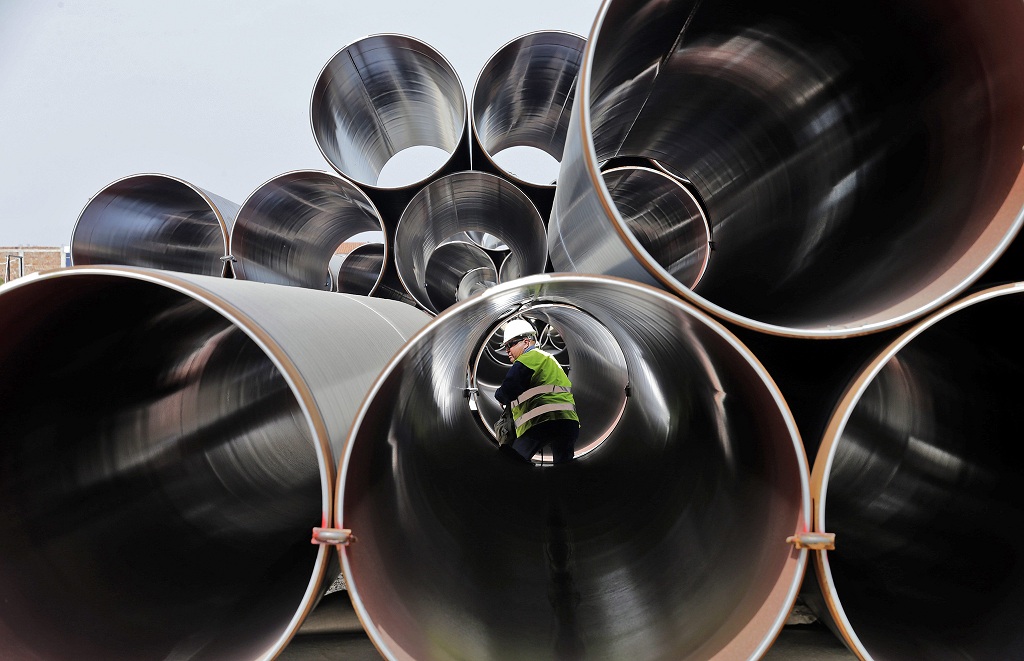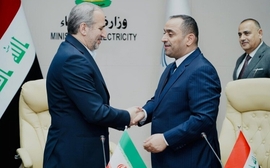Construction of the Trans Adriatic Pipeline (TAP), considered the final segment in the three-phase Southern Gas Corridor mega-pipeline that will deliver Caspian natural gas to Europe, has ignited claims that the environment and key industries in those countries through which the pipeline passes will be negatively impacted.
Environmental activists say that the pipeline will harm nature and negatively impact tourism, including in Italy’s southern Puglia region, where TAP comes to its end and enters Europe via eight kilometers of onshore pipeline.
Executives representing the TAP project have repeatedly dismissed any claims that the project will harm the ecosystems through which it passes or hurt key industries like farming and tourism.
“The Trans Adriatic Pipeline project will not have a negative impact on the environment,” said Luca Schiepatti, Managing Director of TAP, in a statement issued on August 3. “The use of modern technologies within the framework of the project will allow [us] to take into account the peculiarities of the territories through which the pipeline will pass.”
Schiepatti went on to explain that the project’s plans adequately address environmental and social impacts of the pipeline, adding that the TAP consortium “is ready to support the development of tourism in the Puglia region of Italy.”
TAP forms the third and final segment to the 3,500 kilometer-long Southern Gas Corridor (SGC), worth $45 billion in investments, which starts at the Shah Deniz gas field in Azerbaijan. The SGC is comprised of three pipelines, the first which passes through Azerbaijan and Georgia and is called the South Caucasus Pipeline. In eastern Turkey, the Trans-Anatolian Pipeline picks up and continues across the entire length of the country, before ending in Greece where TAP begins and continues through Albania and underneath the Adriatic Sea, before ending near the town of San Foca in Italy.
The SGC project was the brainchild of the European Commission, to help Europe reduce its dependency on Russian gas. Overall European energy dependency on foreign sources has not dipped below 50 percent since 2004, according to data compiled by the EU’s statistical office, Eurostat.
Despite the benefits of the SGC and its 878 km-long final phase known as TAP, environmentalists have been standing firm against the pipeline’s construction. TAP will run straight through dunes, pinewood forests, olive groves and state roads in Italy, where local administrators and residents fear it will end up crippling the region’s tourism and agricultural sectors.
On March 27, the Council of State, Italy’s top administrative court, had sanctioned the construction of the TAP pipeline after claims were brought forth by those concerned about its impact. One day later, a protest erupted in the village of Melendugno in the Puglia region, involving 300 residents that objected to the removal of 211 olive trees to make way for an eight kilometer underground tunnel that was being dug to house the pipeline’s onshore segment. TAP developers explained that the uprooted trees would be relocated to a temporary location for two years, and brought back for replanting in their original locations after the tunnel had been established and the pipeline in operation.
Ilham Shaban, head of the Caspian Barrel Oil Research Center in Baku, says claims that the pipeline will be damaging are baseless, saying that Europe has been receiving billions of cubic meters of gas via pipelines extending from Russia since 1968 and has not yet faced any environmental disaster.
“Each pipeline that is built in line with necessary technical requirements serves to deliver energy properly and safely. These environmental concerns are not matters of fact. In Italy, the protest against TAP is orchestrated by the opposition party as a tool against the government. This is a political ploy, rather than an environmental issue,” Shaban told Caspian News.
According to TAP developers, the pipeline is being constructed in compliance with international benchmark performance requirements set by the European Bank for Reconstruction and Development. Thorough environmental and social impact assessments were conducted in Greece, Albania and Italy in the initial stages of the project. Developers say that they are committed to avoiding, minimizing and mitigating any negative effects on the environment, including emissions to air, discharge of liquid runoffs, and the generation of waste products.
TAP is expected to be completed by 2020, when the first deliveries of Azerbaijani gas will be made to Europe. According to the official website for the project, “TAP’s commitment to the environment is at the very heart of our project.” Any land that is disturbed during the construction of the pipeline will be reconstructed back to its original condition, including replacing top soil, removing all temporary crossings and infrastructure, and reinstating all original facilities and vegetation.
TAP is estimated to cost €4.5 billion ($5.307 billion). Its shareholders are British Petroleum (BP, 20 percent), the State Oil Company of Azerbaijan Republic (SOCAR, 20 percent), Italy’s Snam S.p.A. (20 percent), Belgium’s Fluxys (19 percent), Spain’s Enagás (16 percent) and Switzerland’s Axpo (15 percent).
The initial capacity of the pipeline will be 10 billion cubic meters (bcm) per year, with the possibility of doubling that amount. Europe consumed roughly 446 bcm of natural gas in 2016, according to data provided by BP in June, representing about 25 percent of Europe’s total energy consumption.







 The number of evacuees from flooded areas in Kazakhstan has reached 97,852 people, including about 32,856 children since March 27.
The number of evacuees from flooded areas in Kazakhstan has reached 97,852 people, including about 32,856 children since March 27.
 The Islamic holy month of fasting, Ramadan comes to an end this week with the celebration of a joyous festival called Eid (meaning “festival” in Ar...
The Islamic holy month of fasting, Ramadan comes to an end this week with the celebration of a joyous festival called Eid (meaning “festival” in Ar...
 Iran's senior military leaders described the drone and missile attack on Israel on April 14 night as “successful".
Iran's senior military leaders described the drone and missile attack on Israel on April 14 night as “successful".
 Iranian President Ebrahim Raisi warned Israel that it would face a "real and extensive" response if it makes any "mistake" following Tehran’s missi...
Iranian President Ebrahim Raisi warned Israel that it would face a "real and extensive" response if it makes any "mistake" following Tehran’s missi...



